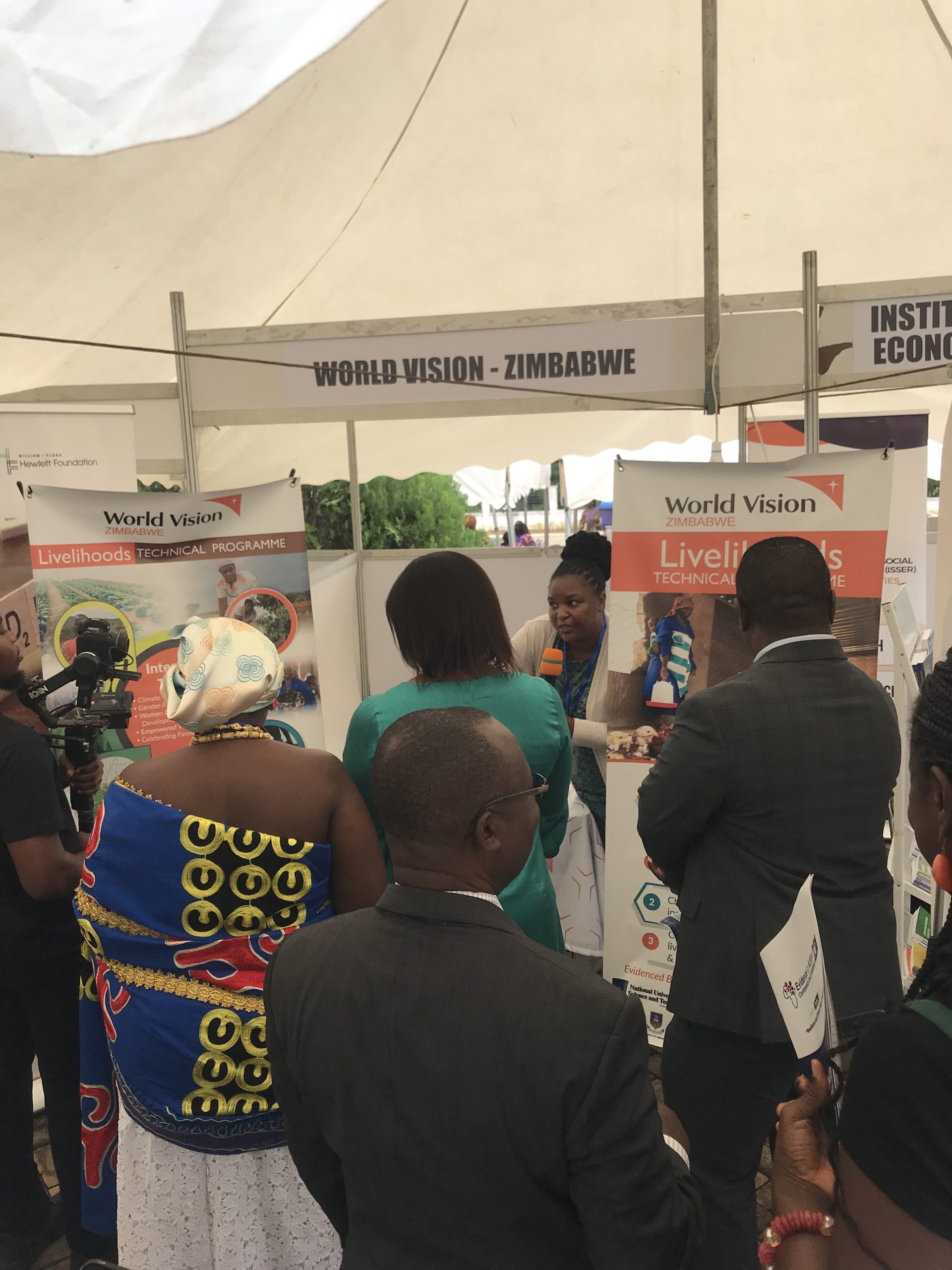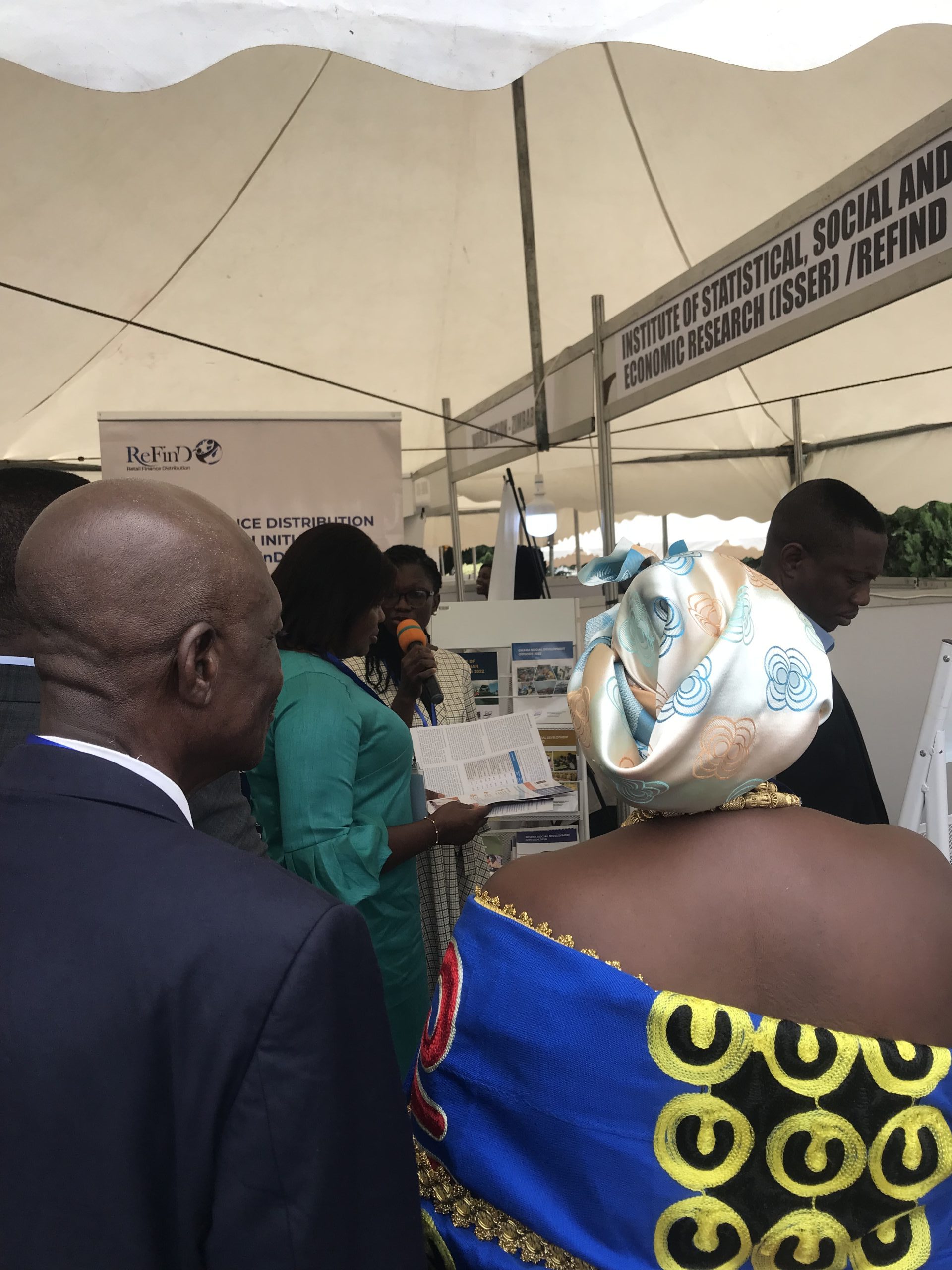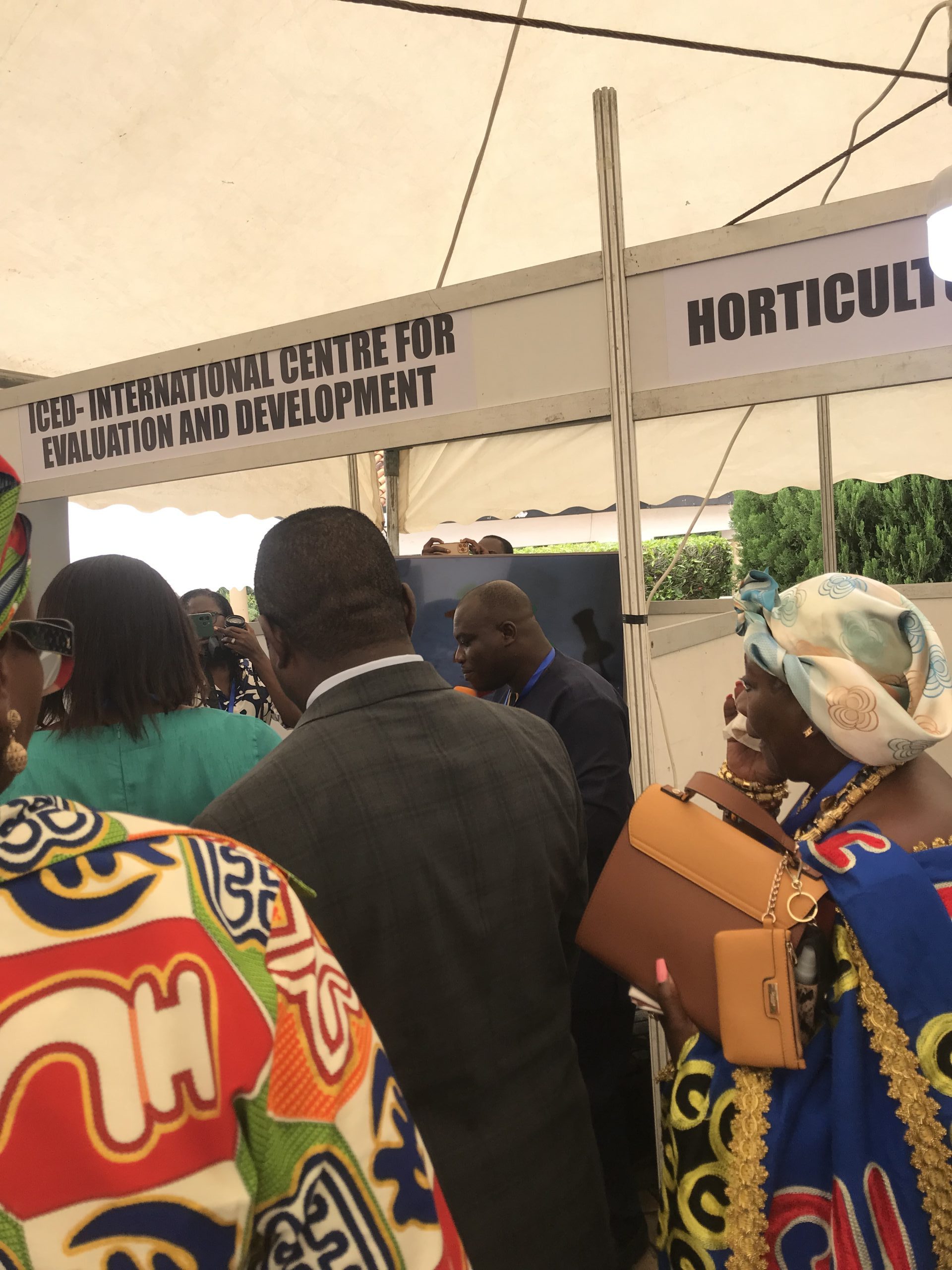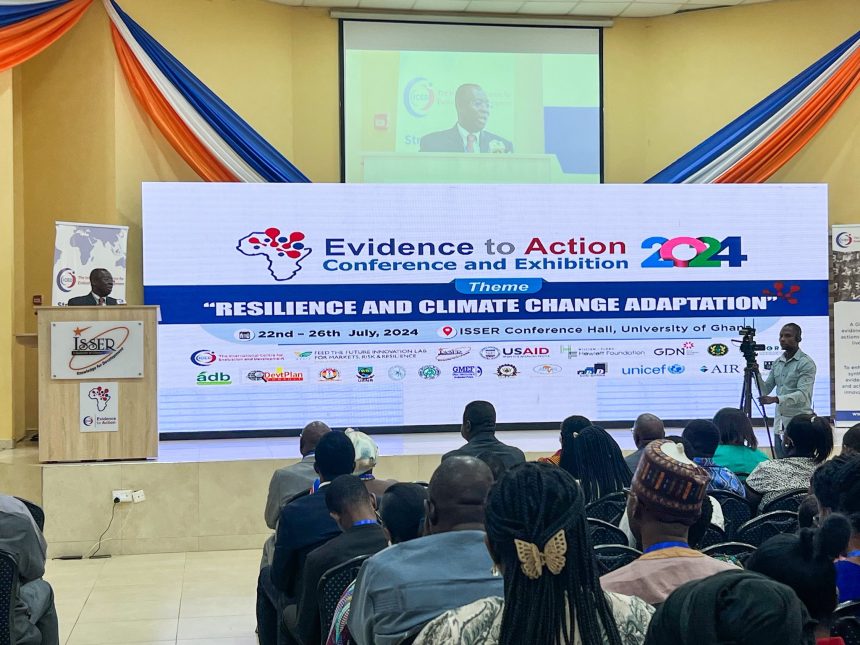The Institute of Statistical, Social and Economic Research (ISSER) of the University of Ghana has flourishingly held the opening session of the 7th African Evidence to Action conference and exhibition (E2A 2024).
The event, staged at the ISSER Conference Facility on Wednesday, July 24, under the theme “Resilience and Climate Change Adaptation”, explored the linkages and synergies between resilience and climate change adaptation, addressing critical impacts of climate change in Africa.
E2A 2024 is, however, a 5-day program that will span from July 22 to 26.
The commencement ceremony featured special guests and keynote speakers such as the Vice-Chancellor of the University of Ghana, Prof. Nana Aba Appiah Amfo, Minister of Environment, Science, Technology and Innovation, Hon. Ophelia Mensah Hayford, Chair of the Parliamentary Select Committee on Environment and Science, Dr. Emmanuel Marfo, among other dignitaries.
CEO/President of International Centre for Evaluation and Development (ICED) and, also, Adjunct Scholar at ISSER, University of Ghana, Dr. David Sarfo Ameyaw opened the floor by recounting how the African Evidence to Action emerged.
“This conference started in 2017 as a result of the need for Africa to ship our development priorities with sound evidences that are being generated on this continent. The history of Evidence to Action conference started in the Reagan Building, when I was invited to a conference where researchers were presenting their findings on risk and markets. And after the presentation, I asked Michael, why are they presenting all these evidences in Washington when these evidences are being generated in Africa? And he said, David, what are you talking about? And I said, why don’t we do it in Africa? And in 2017, the first evidence to action started in Nairobi, Kenya” He said.
In a pivotal address, Vice Chancellor of the University of Ghana Prof. Nana Aba Appiah Amfo highlighted the necessity of uniting policymakers, practitioners, and researchers to confront the pressing challenges of climate change; commending the initiative.
“At this critical time in the history of our countries, bringing policymakers, practitioners & researchers together to deliberate on challenges posed by climate change with the view to identifying and proposing solutions is indeed a laudable initiative”
Also, Cameroonian diplomat and Board Chairman of International Centre for Evaluation and Development (ICED), Dr. Namanga Ngongi, emphasized the dire consequences of climate change on African agriculture, citing data from African Risk Capacity.
“According to African Risk Capacity, this continent, has faced more than 1400 weather–related disasters in 29 African countries from 2000 to 2023, that have led to loss of lives and also resulted in the de–functioning of our communities. We still move around pretending that we do not see what is going on.”
“As a farmer, I am confused. I do not know when to plant and what crop. The weather has actually changed. When you plant green crops, they are ruined by rains when it’s harvesting time. These are things that should push all of us to find and to use knowledge that is being accumulated, evidences that are being accumulated to try to put together strategies that will give us more stability in the agricultural sector” He added.
Climaxing the event, Minister of Environment, Science, Technology and Innovation, Hon. Ophelia Mensah Hayford touched on Ghana’s proactive measures implemented in combating climate change.
“Ghana had implemented a number of initiatives to increase resilience and prepare for the effects of climate change over the years”. She said
“Under the one village one dam initiative, 570 small earth dams were built to provide climate vulnerable farmers with year–round access to water. In 15 settlements in the Northern region,irrigation systems were developed and restored; irrigating over 11,000 hectares of crops. Since 2016, over 40,000 farmers have been assisted in implementing sustainable land and water management practices to increase yields and incomes in order to facilitate community water–shared management”. She added
The 7th African Evidence to Action conference and exhibition brings together experts from over 40 countries to discuss innovative research and practical solutions for climate challenges in Africa.
Below are some images from the exhibition.



–
Story by: Gabriel Tecco Mensah | univers.ug.edu.gh





